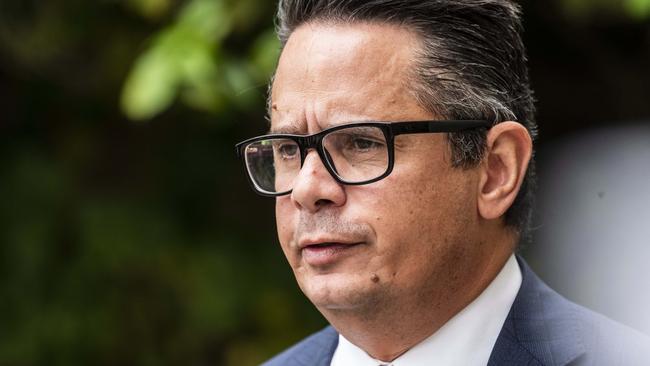Native title ‘was good for miners’, says Ben Wyatt
Native title has given miners a legitimacy to operate in Australia that they did not have before the legislation that flowed from the Mabo ruling, says Rio Tinto director Ben Wyatt.

Native title has given miners a legitimacy to operate in Australia that they did not have before the legislation that flowed from the High Court’s 1992 Mabo ruling, according to the first Indigenous director of Rio Tinto Ben Wyatt.
On the eve of the 30th anniversary of the Mabo case, which overturned the myth of terra nullius, Mr Wyatt said the ruling set Australia on an incredible journey. This was especially true in Western Australia, which he described as “the native title state”.
“It actually hasn’t been that long. We have seen what has been considered the wild west embrace Aboriginal people,” Mr Wyatt said. “Bear in mind corporate Australia – in particular the resource sector – opposed native title. Now native title actually gives those companies the legitimacy to operate.”
Mr Wyatt, the former treasurer and Aboriginal affairs minister in the McGowan Labor government, was speaking at an event hosted by Reconciliation WA to honour the contribution of retiring board member Fred Chaney. Mr Chaney was Aboriginal affairs minister in the Fraser government and has devoted his life after politics to reconciliation and to serving Indigenous organisations as a volunteer.
In a conversation broadcast from the WA Museum Boola Bardip on Tuesday night, Mr Wyatt and Mr Chaney discussed how native title became an accepted part of doing business in Australia.
Mr Chaney said that in the years before Mabo he regularly had conversations with the most senior executives at the Melbourne offices of CRA, the forerunner to Rio Tinto. “People there were very high quality, terrific people but they were totally opposed to the notion that Aboriginal people should be allowed to get in the way,” Mr Chaney said.
He said it was a great day in 1995 when CRA chief executive Leon Davis, later chief executive of Rio Tinto, delivered what became known as “the sensitive new age miner speech” announcing the company would work with native title not against it.
“They (the company) suddenly realised they weren’t dealing with people who were just another interest group, they were dealing with stakeholders.
“Although he is seen by some as a saint I don’t think his conversion was a spiritual conversion because the reality is that he was dealing with people who have legal rights. They had to deal with the stakeholders.”
Mr Chaney said that when Mr Davis left for London to become head of Rio Tinto he gave a speech at old Parliament House heralding the new system a success.
“He said ‘The last time we opened a mine under the old system of opposition was Marandoo and it came in late and over budget. The first one we did under the new system was Yandi and we came in early and under budget. Isn’t it nice to do the right thing and have a commercial advantage?’.
“So I think the great thing is that the mining industry led the change for the treatment of Aboriginal people as stakeholders and not as mendicants or as supplicants and I think that’s changed Australia for the better in an enormous way.”
Journalist Victoria Laurie wrote Mr Chaney’s reconciliation memoirs for Reconciliation WA. The resulting 15,000-word book begins with the legislation of voting rights in 1962, documents the land rights regimens established in most Australian jurisdictions in the 1970s and 80s and includes his description of the Uluru Statement from the Heart and its call for an Indigenous voice in the constitution as “a modest proposal, and the right thing to do”.




To join the conversation, please log in. Don't have an account? Register
Join the conversation, you are commenting as Logout